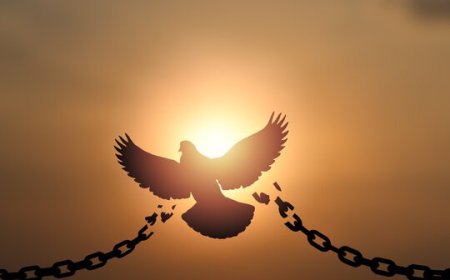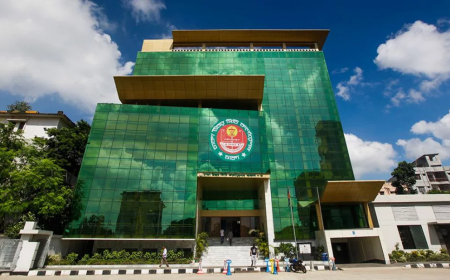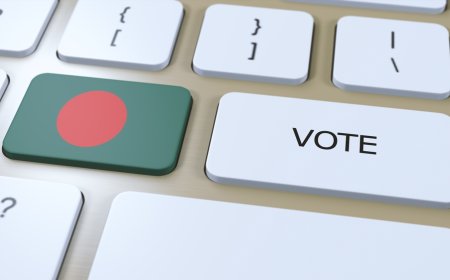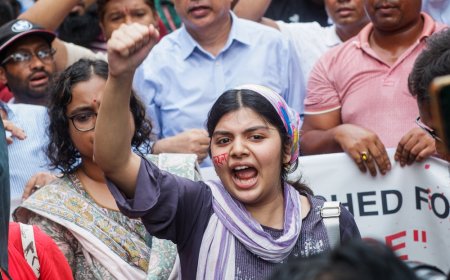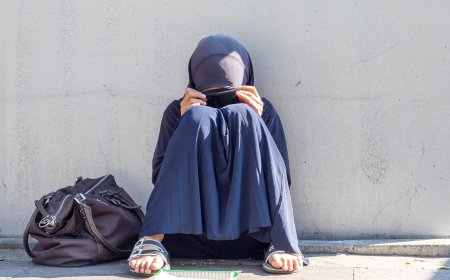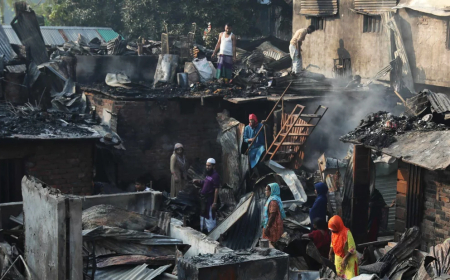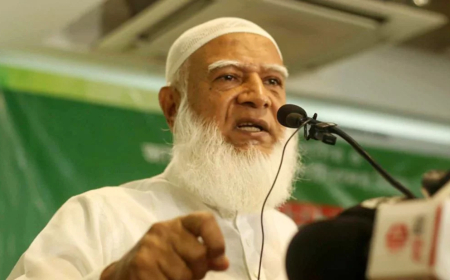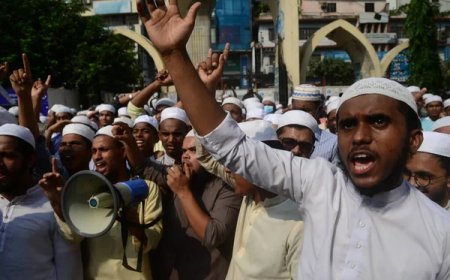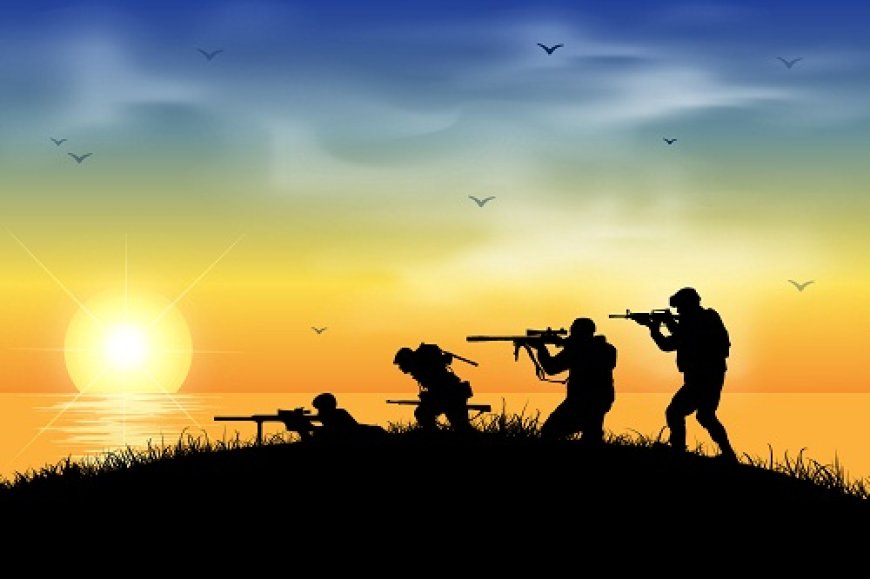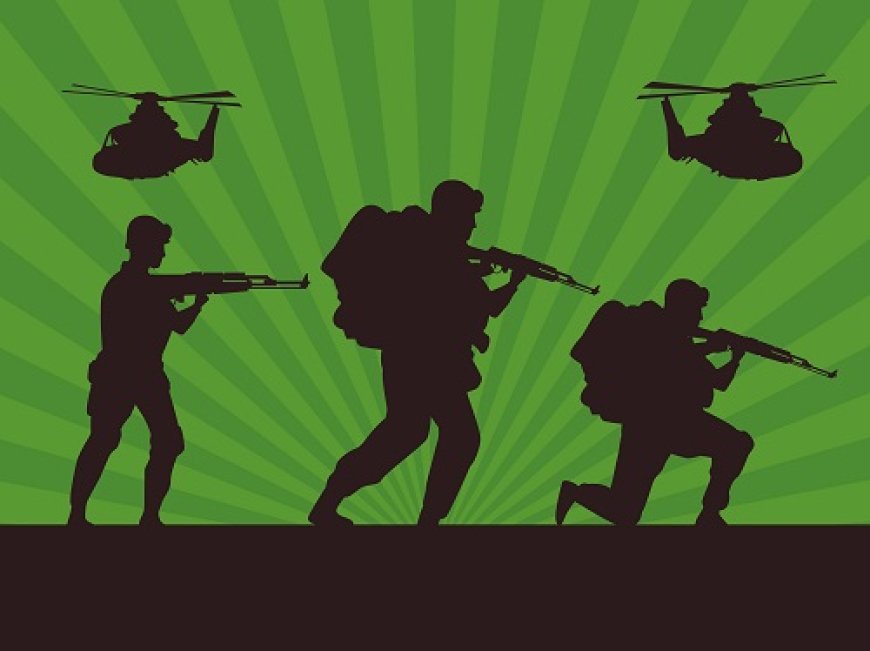Defense Modernization: Will Bangladesh Send More Troops Abroad?
Bangladesh has a long and storied history as a key player in international peace and security. Defense modernization must keep in this in mind. Upholding global peace and justice needs to continue to be part of the nation's brand.
The war in Ukraine and the genocide in Gaza have given rise to talk in world capitals of an international peacekeeping force for deployment to both conflicts.
A European-led “reassurance force” has been touted for Ukraine to monitor any potential ceasefire with Russia. The idea of this reassurance force has been championed by the French president Emmanuel Macron.
It was also reported that the Trump administration in the United States has considered the possibility of establishing a demilitarized buffer zone in Ukraine which would be reinforced by troops from non-NATO countries. The news agency Reuters described “the buffer, envisaged to protect Ukraine from further Russian attacks, would be a large demilitarized zone and could additionally be secured by troops from one or more non-NATO countries such as Saudi Arabia or Bangladesh.”
In Gaza, the idea of a stabilization mission has been floating for months. A military contingent from the Arab League has been one of the options which was proposed. A United Nations peacekeeping force for Gaza can also be an option.
For the Interim Government, questions of constitutional law shall arise concerning any deployment of troops abroad. The Interim Government can approve the dispatch of Bangladeshi troops under a United Nations peacekeeping mandate, which entails a resolution passed by the Security Council establishing a UN peacekeeping force for a conflict zone. This is because it has been the custom and practice of the Bangladesh Armed Forces to dispatch UN peacekeepers without hindrance from the political masters of the Bangladeshi government. The Bangladesh Police has also sent its members to various UN peacekeeping missions.
In the absence of a UN mandate, sending troops abroad becomes a matter of great national, strategic, security, moral and constitutional importance. Under the Bangladesh Constitution, it is only Parliament which can authorize the deployment of Bangladeshi soldiers to join a war. Article 63 of the Bangladesh Constitution declares that “the Republic shall not participate in any war except with the assent of Parliament.” During the Gulf War in 1990, the fourth parliament deliberated on the deployment of Bangladeshi soldiers in the Middle East. But the Interim Government is operating in a parliamentary vacuum. Parliament stands dissolved.
However, if the deployment to Ukraine or Gaza involved non-combat operations and demilitarized peacekeeping, the question becomes whether Bangladesh is joining a war or merely contributing to policing functions for a ceasefire zone. If it is the latter, there is sufficient precedent for the Interim Government to authorize deployments to a ceasefire zone. The question also arises if these deployments would be under the UN flag or part of a multinational coalition. Is the blue helmet a necessary precondition for overseas deployments? Bangladesh has contributed to multinational coalitions in the past outside the UN’s purview.
The Bangladesh Constitution in Article 25 calls for the renunciation of the use of force much like the UN Charter, which declares that: “All Members shall refrain in their international relations from the threat or use of force against the territorial integrity or political independence of any state, or in any other manner inconsistent with the Purposes of the United Nations.”
However, while the renunciation of the use of force is an ideal to which Bangladesh shall “strive” for as per Article 25, the reality is that the provision does not preclude Bangladesh from deploying its armed forces to resist the use of force against a sovereign state which faces a threat to its territorial integrity, independence ,and sovereignty.
Article 25 did not preclude Bangladesh from deploying its army units to the Middle East during the 1973 Arab-Israeli War. A Bangladesh Army medical unit was dispatched to Syria without a UN mandate.
In 1994, Bangladesh joined the US-led coalition to restore democracy in Haiti, after the UN Security Council adopted Resolution 940 which authorized military intervention for the first time to restore democracy. Bangladesh was one of the largest contributors to the US-led multinational coalition under the banner of "Operation Uphold Democracy."
At the time, a lawsuit was filed in the High Court against the BNP government’s decision to deploy troops. The High Court defended the deployment of Bangladeshi troops to Haiti as part of a multinational coalition to restore the legitimately elected government of Haiti. The High Court cited Resolution 940, Chapter VII of the UN Charter, and Article 25 of the Bangladesh Constitution in its support for the deployment of Bangladeshi troops to Haiti. Since the Haitian deployment, Dhaka has refrained from joining US-led coalitions. As of today, the Haitian deployment was the last US-led military interventionist coalition which involved Bangladesh.
In 1988, Bangladesh dispatched its first UN peacekeeping mission, as part of an observer group to monitor the ceasefire between Iran and Iraq. In 1990, Bangladesh joined the US-led coalition to liberate Kuwait and defend Saudi Arabia as part of the Gulf War. While the UN Security Council called for an end to the Iraqi occupation of Kuwait, the Gulf War coalition was not a UN force but a "coalition of the willing." The Bangladeshi contingent was stationed in eastern Saudi Arabia where Iraqi raids were threatening Saudi Arabian territory. A Bangladesh Military Contingent continues to reside in Kuwait even today many years after the war.
Since 1988, Bangladesh has emerged as one of the largest contributing nations to UN peacekeeping operations. As of today, Bangladesh has taken part in 63 UN peacekeeping missions, deployed 200,000 personnel as peacekeepers, and supported peacekeeping in 43 countries. The peacekeeping dividend has given Bangladesh an array of experience in conflict zones across different continents, thereby positioning Dhaka as a suitable candidate to promote peace in the two most grueling conflicts of our time.
Bangladesh needs to tap into its strengths and its history to reinforce its standing as a responsible contributor to international peace and security. Defense modernization must include efficient decision-making for Bangladesh to uphold global peace and justice.
The writer is a Research Associate at the Cosmos Foundation and Bay of Bengal Institute, as well as Assistant Editor of the Dhaka Courier, and a consultant on legal and political history.
Follow on X: @umranchowdhury
What's Your Reaction?










